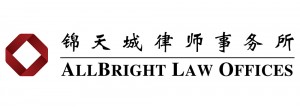With the promulgation and implementation of the Export Control Law, the state export control authority, customs and other authorities will further clarify their division of responsibilities, refine their law enforcement procedures and criteria, and then revise and issue related complementary systems. This article explores customs compliance under the law to assist enterprises in duly preparing in advance for the transition period.

Senior partner
AllBright Law Offices
Pertinent features
The law expands the scope of controlled items, with such items not only including goods and technologies, but also services and such data as technical information relating to items, etc.
In terms of the entities to which it applies, the law specifies that exports not only include the transfer abroad of controlled items from China, but also the provision of controlled items by Chinese citizens, legal persons and unincorporated organisations to foreign organisations and individuals; accordingly, not only does the law apply to exporters of goods, as usual, but also to Chinese citizens, legal persons and unincorporated organisations.
In terms of controlled acts and stages, the law also covers “treated as export”, “transit-tranship-through traffic” and re-export. The phrase “treated as export” means an act whereby a Chinese citizen, legal person or unincorporated organisation transmits, provides or transfers a controlled item to a foreign organisation or individual, from inside or outside China, and export control includes the prohibition and restriction of such acts. In addition to the conventional export stage, the transit, transhipment, through traffic and re-export, as well as export from a bonded zone, export processing zone or other such special customs supervision zone, or from an export supervised warehouse, bonded logistics centre or other such bonded supervised facility, to a foreign country is also deemed export under the law.
In terms of other particular systems, the law adds measures that facilitate licensing (article 14) and a control list system (article 18), and also provides for the “principle of reciprocity” (article 48).

Senior legal counsel
AllBright Law Offices
Main duties of customs
First, verification of licence documents. Customs and the issuing authorities have now fully realised networked supervision of export licences for dual-use items and technology, and customs will automatically verify the relevant licence documents through the system.
Second, authentication, questioning and withholding of release. If the consignor of export goods fails to submit licence documents to customs for verification, or customs has evidence indicating that the export goods could fall within the scope of goods subject to export control, it is required to question the consignor.
Customs may ask the state export control authority to arrange for authentication, and will deal with the matter in accordance with the law in light of the authentication conclusion arrived at by the state export control authority. Customs will not release the goods during the authentication or questioning period.
Third, investigation and administrative penalties. Article 40 of the law provides that where export controls have been violated, and laws or administrative regulations specify that penalties are to be assessed by customs, customs will impose penalties. Of course, in the actual course of law enforcement, investigation and handling by customs of export control violations in accordance with the law may present issues of conflict/agreement with the provisions of the Customs Law, the Implementing Regulations for Customs Administrative Penalties, etc., and division of penalty authority, requiring further refinement and clarification by customs.
Response by enterprises
In addition to the Regulations of the PRC on Administration of Arms Export, other items listed on lists have been harmonised by the Ministry of Commerce and the General Administration of Customs in the Control List of Administrative Measures for Administration on Import & Export Licensing of Dual-use Items and Technologies, and are administered by way of the corresponding HS codes assigned to them.
The state export control authority may subject items not on the control list to temporary control for purposes of safeguarding national security. Enterprises need to keep track of legislative developments, and check and confirm whether relevant items have been included on a control list, or are subject to temporary control, so as to facilitate a timely response.
Second, the law requires an exporter to submit to the state export control authority documents evidencing the end user and end purpose of a controlled item. This end user is required to undertake not to change the end purpose of the relevant controlled item, or transfer it to any third party without the permission of the state export control authority.
If the exporter or importer learns that the end user or end purpose may have changed, it is required to promptly report the same to the state export control authority. Furthermore, the state export control authority may, with respect to importers and end users included on a control list, take such necessary measures as prohibiting or restricting the trading in a relevant controlled item, or issue an order suspending the export of the controlled item. An exporter may not violate regulations by dealing with importers or end users included on a control list.
Based on the above-mentioned, an enterprise should foresee relevant risks when accepting an order, and at the export and sale stage of the controlled item, and establish a customer risk and warning screening system. If necessary, it may address an inquiry or submit an application to the national export control authority in advance so as to effectively reduce compliance risks.
Finally, for an enterprise, it is important to skilfully use relevant system dividends and strive to achieve a higher credit rating to be fully eligible for policy and system dividends. Customs currently subjects enterprises to a system of administration by credit, subjecting them to different administrative measures depending on their actual credit ratings.
The general principle is to “acclaim good faith, punish bad faith”, such that the higher an enterprise’s credit rating, the more preferential measures to which it is entitled. The administrative measures applicable to advanced certified enterprises are more favourable than those applying to general certified enterprises. Delinquent enterprises fall below the baseline and are subject to severe penalty measures.
Jia Xiaoning is a senior partner and Ning Jing is a senior legal counsel at AllBright Law Offices

AllBright Law Offices
11/F and 12/F, Shanghai Tower
No. 501 Yincheng Middle Road
Pudong New Area
Shanghai 200120, China
Contact details:
Tel: +86 21 2051 1000
Fax: +86 21 2051 1999
Email:





















